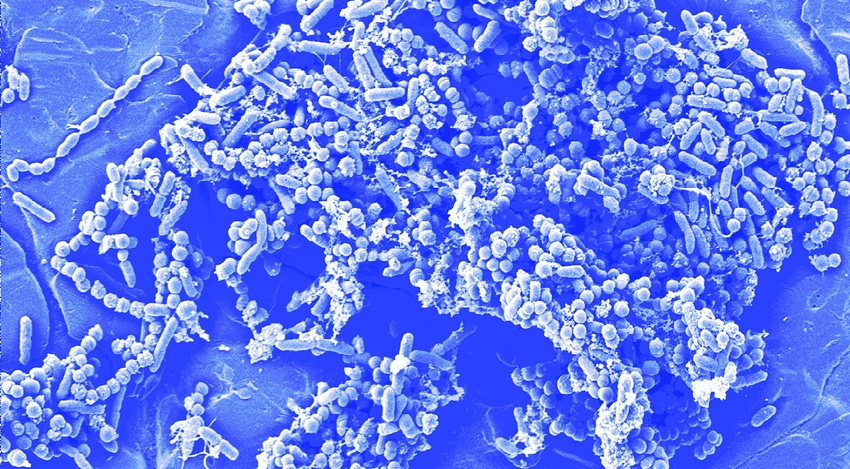July 14, 2021

Seeking next-generation ways to make our favorite foods safer, Phoebe Unger, doctoral student in the WSU School of Food Science, will benefit from a Foundation for Food and Agricultural Research (FFAR) Fellowship.
The award funds professional development for Unger, whose student research explores the use of tiny air bubbles on the nano-scale—a billionth of a meter—to fight bacteria that can cause illness and spoil food.
Nano-bubble technology can help common sanitizing solutions better break down biofilms, the sticky layer of bacteria that cling to surfaces of equipment.
“It could make tremendous strides in food safety and reduce food spoilage and waste,” Unger said.
Her work could help dairy and food industries, which rely on effective sanitation of processing equipment and facilities.
Among other projects in dairy safety and food quality, Unger is working with fellow WSU doctoral student Aminder Sekhon to develop a way to rapidly identify foodborne pathogens using hyperspectral imaging. Still in its infancy, this technology uses a range of the spectrum beyond visible light.
“Once fully developed, these technologies will enhance food safety, improve sustainability, and lower concentrations of these chemicals in our food systems, said Assistant Professor of Dairy Science Minto Michael, Unger’s advisor.
Unger’s interest in food began at a young age, when her parents opened a bakery in her hometown.
“I spent much of my childhood at the bakery, helping wherever I was needed,” Unger said. “I was curious about the science behind food.”
Fascinating food science
As an undergraduate at the University of Idaho, she learned about the program “that took two of the most fascinating aspects of my life, food and science, and combined them in a single area of study. After my first class, I was instantly hooked,” Unger said. Further exploration in a food microbiology course confirmed her in the food safety path.
“Phoebe is one of my most hardworking and dedicated students,” Minto said.
Established by Congress in 2014, FFAR is a non-profit corporation that funds pioneering research health, sustainability, and agriculture. The FFAR Fellows Program was established to provide professional development and career guidance to the next generation of food and agriculture scientists. Fellows are co-mentored over a three-year program by university and industry experts.
“I want to thank the foundation for this amazing opportunity to grow and expand my professional skills while working first-hand with the industry,” Unger said. “This fellowship will push me beyond what I’ve previously experienced. Being a part of this cohort also allows me to expand my network and build lasting ties.
Unger expects to graduate in 2024.
WSU’s School of Food Science helps improve food quality, safety, and security through research, training, and outreach. Learn more about the School of Food Science here.
Source: Washington State University, which is solely responsible for the information provided and is wholly owned by the source. Informa Business Media and all its subsidiaries are not responsible for any of the content contained in this information asset.
You May Also Like




